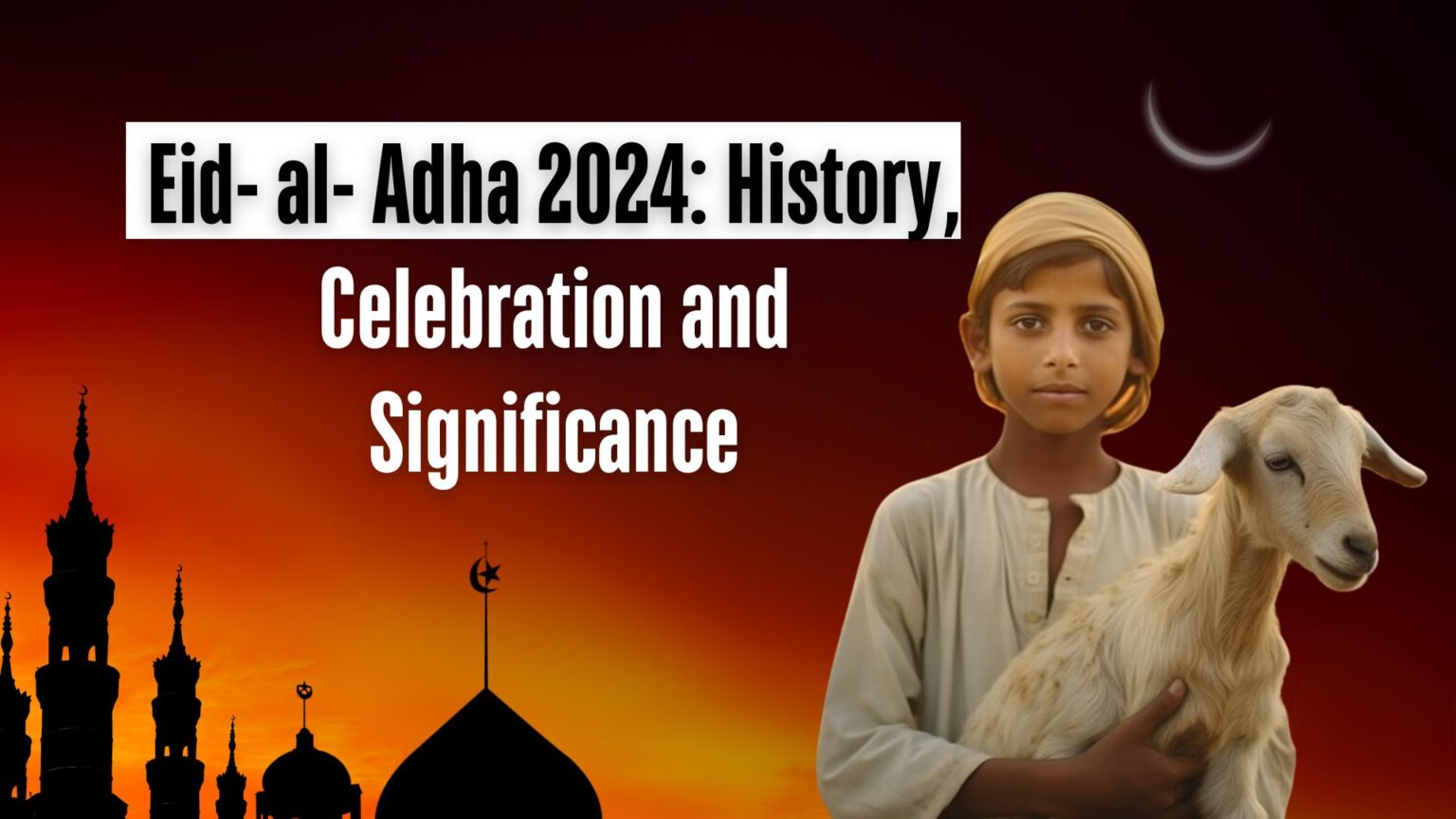Bakra Eid, also known as Eid Al Adha, is one of the two most prominent festivals of Muslims. The day is observed on the 10th day of the Islamic month of Dhul Hijjah, which is the twelfth and final month in the Hijri calendar. The festival highlights the willingness of Prophet Ibraheem (AS) to sacrifice his son Ismaeell (AS) as an act of obedience to Allah.
History of Eid al-Adha
The history of Eid al-Adha is associated with the story of Prophet Ibraheem (AS) and his obedience to sacrifice his son Ismaeel (AS) as commanded by the Almighty Allah. The verses 107-111 from Surah Al-Saffat, “And We ransomed him with a great sacrifice”, highlights the story of Ibraheem (AS) and his sacrifice, which led to the celebration of Eid- al- Adha
The Story of Prophet Ibraheem
Ibraheem (As) had a dream that he was being commanded to sacrifice his son for the sake of Allah. It was a tremendous trial from Allah to Ibraheem, that he would sacrifice his only son Ismaeel for the sake of Allah, who was born after he had reached old age, Prophet Ibraheem did not hesitate and wanted to sacrifice his son as soon as possible.
He told his son about the dream so that he could be physically, mentally, and spiritually ready for the sacrifice.
“He said, oh my son! I see in a dream that I offer you in sacrifice, so tell me what is your view” (37:102)
Ismaeel ( AS) immediately agreed to the commands of Alllah, Ibrahim (AS) laid down his son “So when they had both submitted to the Will of Allah, And he laid down upon his brow,” (37:103), and wanted to put the knife through the neck of his son, but it did not cut anything. Instead, Almighty Allah provided a ram to be sacrificed.
Then a call from Allah came, “ O Ibrahim you have indeed fulfilled the vision” (37:104,105) telling that the purpose of the hardship has already been achieved.
This act of obedience and devotion by Ibraheem is celebrated as Eid Al Adha, a festival that honors the importance of faith and sacrifice.
How do Muslims celebrate Eid-al- Adha ?
Eid al-Adha, a major Islamic festival, commences with a special Salah ( Namaz prayer) at mosques after sunrise. After this, Muslims sacrifice an animal, typically a goat or a sheep to demonstrate their devotion for Allah.
The sacrificed meat is then divided into three parts: one portion is distributed to the poor and needy, another is shared with relatives and friends, and the remaining is kept for the family’s own consumption.
The feast is prepared using the meat. People are encouraged to dress in their finest attire and indulge in the best food available.
The Significance of Eid al-Adha
Along with the act of sacrifice, Eid al-Adha celebrates the love that Prophet Ibraheem and Prophet Ismael had for Allah, the Almighty. This festival marks the sacrifice of what one loves the most for God.
Here are a few significance of this day.
Sacrifice: The main significance of this day is the sacrifice. Every year, Muslims all around the world sacrifice an animal, typically a goat or a sheep, in remembrance of Prophet Ibraheem and his son Isma’eel.
Charity: The day also marks the importance of charity. As commanded by Allah, the meat of the sacrificed animal is distributed into three parts: for personal consumption, for relatives, and for charity.
“And mention Allah in them with mention, and slaughter them, and mention Allah in them, and eat from them and feed the needy and the beggar. Thus We have made them subject to you, that you may magnify Allah for that He has guided you. And give glad tidings to the believers,” Surah Nas, verse 36.
Community Building:Eid al-Adha is a time for Muslims to come together with family and friends, strengthening bonds and building a sense of community. The festival is marked by feasting, gift-giving, and visits to friends and relatives.









